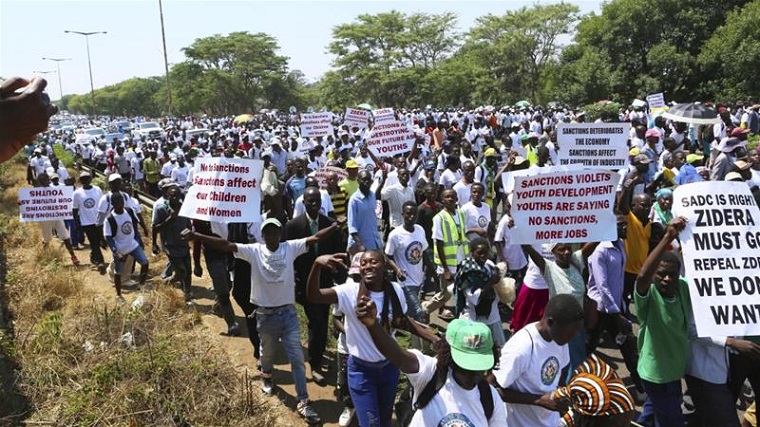Sanctions are a Blunt Instrument
On Friday the SADC region as a whole mounted a coordinated protest against the European and American targeted sanctions against Zimbabwe.
I am a veteran of the UN Mandatory Sanctions program mounted against Rhodesia after the Unilateral Declaration of Independence in 1965.
Although it is a long time ago, the program was one of the toughest set of sanctions ever imposed by the UN on a delinquent State.
The sanctions were absolute on trade, financial transactions and movement. They were reinforced by an armed blockade of the main Port of the country at Beira in Mozambique.
I was a junior economist with the Agricultural Marketing Authority which was at the time the largest business organisation in the country.
Because of my political views at the time as a well know activist, I was regarded as a security risk by the Government and the Minister of Justice called for me to be dismissed from the Authority because of our key role in sanctions. Fortunately for me the Chairman of the Board refused to do so.
In the next 12 years we battled sanctions, as Agriculture generated half of all exports, we were involved in about US$1.5 billion of foreign trade per year.
It is a great pity that so many who were involved in that exercise are no longer with us as it would have made a marvellous story.
Their ingenuity and enterprise was amazing and we had people in the Authority with global connections and who spoke a dozen languages. Most of the records of that era were destroyed at Independence in 1980.
We built alternative infrastructure in record time and we used many different routes and means of delivering our products and returning the funds generated therefrom, to our local Banks.
Despite the effort put into the sanctions, Rhodesia thrived. Import substitution grew the industrial sector and after three years’ agriculture was back to full production – only more diversified.
Despite the sanctions, the Rhodesian dollar maintained its value against other currencies. Although the authorities were proud of the secrecy in which these sanction busting efforts were being made, I now know that the major western nations knew pretty much what we were doing.
Even the Soviets played along and when we were caught with millions of dollars of exports in Maputo in 1975 after Machel closed the border, it was the Russians who bought the whole lot for cash and eventually we were paid.
Continued next page
(239 VIEWS)


